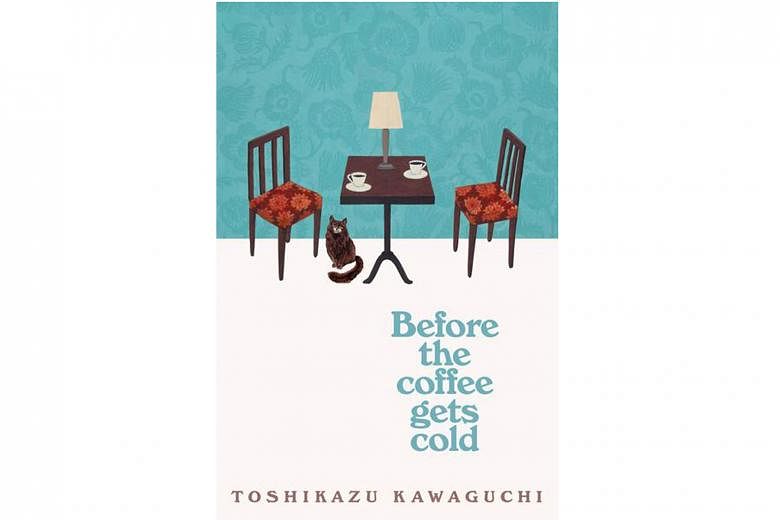FICTION
BEFORE THE COFFEE GETS COLD
By Toshikazu Kawaguchi
Translated by Geoffrey Trousselot Pan Macmillan/ Paperback/ 208 pages/ $18.95/ Books Kinokuniya/4 stars
You might want to have tissue paper on hand while reading this book.
The story is set in a mysterious coffee shop called Funiculi Funicula, which allows people to time travel. Tucked in a back alley in Tokyo, it appears to be stuck in the Meiji era (1868 to 1912), when it supposedly opened for business.
Adapted from a play written by Toshikazu Kawaguchi, 48, the novel has hints of being scripted for the stage.
Published in Japan in 2015, it was well-received. The English translation by Geoffrey Trousselot was published this year. A Japanese movie of the same name was released last year.
Kawaguchi shows his depth of understanding relationships and love through four main characters, each with his or her own reason for wanting to travel through time.
They include Kohtake, a nurse who wishes to receive a handwritten letter from her husband Fusagi, who has Alzheimer's disease, before he forgets her; and bar owner Yaeko Hirai, who wants to see her younger sister for the last time.
Time travellers must return to the present by drinking a cup of coffee before it gets cold, or they turn into a ghost.
There are other rules to follow as well, including not leaving their seat or the cafe when they time travel. Any hope that a time traveller might have about changing the course of the future is quickly squashed by the cafe's waitress, a serious and reticent university student named Kazu Tokita.
"When you go back, no matter how hard you try, the present won't change," Kazu says to Fumiko Kiyokawa, who wants to try to change her boyfriend's decision to move to the United States.
The characters struggle with what to say - or not to say - knowing that the outcome will not change. They also wonder if they will be able to right a wrong.
They attempt to manage their emotions in the short time frame they are given, but all that goes out the window once they are confronted with the past.
Although the reader knows how things will end anyway, it is during the time travel journey that Kawaguchi gives us the missing piece of the puzzle. These are the moments when the tissue paper comes in handy.
It is also when Kawaguchi surprises by flipping the character's perceived situation on its head with little plot twists which are too good to give away here.
But suffice it to say some of the frustrations a few of the characters go through are due to misunderstandings. Instead of wishing to turn back time, perhaps the focus should be on changing our minds and hearts.
Despite the novel's brevity, every word, action and expression moves the story with sufficient momentum, though with little room to breathe.
The story certainly works as a play, but Kawaguchi could afford to further flesh out his characters in a book. What a shame that the ending of each story is premature and comes just as the reader becomes attached to the character.
If you like this, read: A Man Called Ove (Hodder & Stoughton, 2016, $18.95, Books Kinokuniya), a dark comedy about Ove, a grumpy widower who is unbending in his principles and routines and is convinced that he is surrounded by idiots. All that changes when he lets down his defences.


